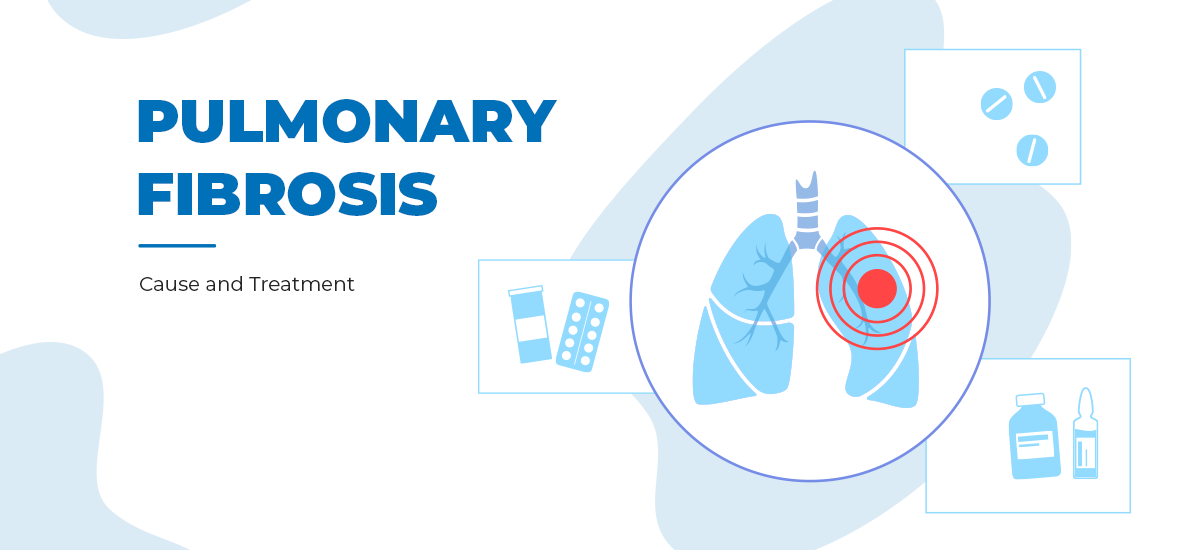Pulmonary fibrosis is a chronic lung condition that occurs when the tissue in the lungs becomes damaged and scarred. This can cause the lungs to become stiff and thickened, making it difficult for oxygen to pass into the bloodstream and for carbon dioxide to pass out. As a result, people with pulmonary fibrosis often have difficulty breathing and may experience symptoms such as coughing, shortness of breath, and fatigue.
Pulmonary Fibrosis Cause
Pulmonary fibrosis can be caused by a variety of factors, including long-term exposure to certain substances such as asbestos and silica, certain medications, radiation therapy, and certain autoimmune and genetic conditions. In some cases, the cause of pulmonary fibrosis is unknown.
Pulmonary fibrosis is a progressive condition, meaning that it typically gets worse over time. In the early stages of the condition, symptoms may be mild and can be managed with medication and oxygen therapy. As the condition progresses, symptoms may become more severe and may require more aggressive treatment. In some cases, a lung transplant may be necessary.
Pulmonary Fibrosis Treatment
There is no cure for pulmonary fibrosis, but treatment can help to manage symptoms and improve quality of life. Treatment may include medications to reduce inflammation and help the lungs function better, oxygen therapy, and physical therapy to improve lung function and endurance. In some cases, a lung transplant may be necessary.
It is important to see a doctor if you are experiencing symptoms of pulmonary fibrosis, such as shortness of breath or a persistent dry cough. A doctor can evaluate your symptoms and determine the best course of treatment. Early detection and treatment can help to slow the progression of the condition and improve your chances of a good outcome.
Living with pulmonary fibrosis can be challenging, but with the right treatment and support, you can manage your symptoms and live a full and active life. It is important to work with your healthcare team to develop a treatment plan that is right for you, and to follow your doctor’s recommendations for managing your condition. With the right care, you can effectively manage your pulmonary fibrosis and improve your quality of life.





